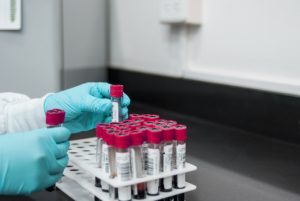Chronic Lymphocytic Leukemia (CLL)
What is chronic lymphocytic leukemia (CLL)?
Chronic lymphocytic leukemia (CLL) is a type of cancer of the blood and bone marrow (the spongy tissue inside bones where blood cells are made). Leukemia in particular is cancer of the white blood cells, which help the body fight infections. Those with leukemia have bone marrow that produces abnormal white blood cells that then crowd out healthy blood cells. In CLL, there are too many lymphocytes, a type of white blood cell. CLL is the second most common type of leukemia in adults.What are the symptoms of chronic lymphocytic leukemia (CLL)?
Many patients with CLL show no early symptoms, but those who develop symptoms later may experience:- Enlarged, painless lymph nodes
- Fatigue
- Fever
- Pain in the upper left portion of the abdomen, which may be caused by an enlarged spleen
- Night sweats
- Weight loss
- Frequent infections
What causes chronic lymphocytic leukemia (CLL)?
The cause of CLL is unclear. Doctors know that something happens to cause a genetic mutation in the DNA of blood-producing cells. This mutation causes the blood cells to produce abnormal, ineffective lymphocytes — one type of white blood cell that helps your body fight infections. These abnormal, ineffective lymphocytes multiply and accumulate in the blood and certain organs, where they cause complications. They may crowd healthy cells out of the bone marrow and interfere with normal blood cell production.How is chronic lymphocytic leukemia (CLL) diagnosed?
Tests to diagnose CLL include:- A complete blood count
- Flow cytometry or immunophenotyping to determine whether an increased number of lymphocytes
- Fluorescence in situ hybridization (FISH), to examine the chromosomes inside the bad lymphocytes to look for abnormalities
- Bone marrow biopsy
- Imaging tests
What are the treatments for chronic lymphocytic leukemia (CLL)?
Treatments for CLL include the following:- Chemotherapy
- Targeted drug therapies, including:
- Alemtuzumab (Campath)
- Ibrutinib (Imbruvica)
- Idelalisib (Zydelig)
- Lenalidomide (Revlimid)
- Obinutuzumab (Gazyva)
- Ofatumumab (Arzerra)
- Rituximab (Rituxan).
- Bone marrow stem cell transplant
Where can I find out more about chronic lymphocytic leukemia (CLL)?
Chronic Lymphocytic Leukemia Articles


After 15 Years, Life-Changing Results for this Chronic Lymphocytic Leukemia Patient
James Moore
October 16, 2023
Read More »

Rare Community Profiles: Dr. Brian Koffman Discusses the Complexities of Immunization for People with CLL/SLL
Jessica Lynn
October 10, 2023
Read More »

Study of the Week: Exercise Provides Major Benefits in Chronic Lymphocytic Leukemia
James Moore
September 5, 2023
Read More »

Study Highlights Benefits of Exercise for Chronic Lymphocytic Leukemia
James Moore
August 30, 2023
Read More »









